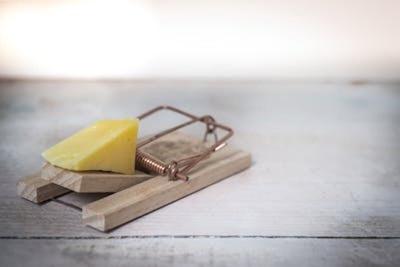
Rodents no longer seem cute and cuddly when they enter your home. Rodent infestations can happen to anyone, no matter how clean or dirty their homes. These infestations are more likely to occur in the fall and winter when rodents look for shelter from the cold. Unfortunately, rodents are one of the most damaging pests. They can also be dangerous.
Why Are Rodents Such a Problem?
Rodents are a significant problem because they are constantly gnawing. Their front teeth never stop growing, so mice and rats must continuously chew to keep them sharp and filed down. Rodents chew through wiring that can cause electric shocks and fires. They will also destroy furniture, walls, flooring, storage materials, and insulation. Unfortunately, they also carry diseases through their urine and feces. Although rare to happen, mice and rats can also bite and cause humans to become ill. When mice and rats become a significant problem, individuals need a Rodent Exterminator.
What Are the Dangers of Rodents in Homes?
Many people do not realize they have a rodent problem until they see telltale droppings in drawers or under appliances. Rodents are shy creatures and will often only come out at night or when things are quiet in the home. The following are some dangers of rodents.
Fire Hazards
Mice and rodents often chew on electric cords, causing the wires to become exposed. Many homeowners are surprised to learn mice cause around 25% of home blazes. Damaged wiring overheats which is often the top reason for sparks and fires to develop.
Diseases
Rodents also pose health dangers to humans. Rodent feces, urine, and saliva can carry diseases like Leptospirosis, Hantavirus, and Tularemia. Always practice precautions by wearing gloves and masks when cleaning up rodent residue.
Food Contamination
Rats and mice urinate and defecate everywhere. Their feet contain traces of both. When they enter your food supply, they will contaminate your food with their waste products. Never consume any food that has come into contact with rodent feces or urine.
How to Get Rid of Rodents
No one wants rodents in their homes unless they are pets. Keeping them out can seem like a full-time job during some parts of the year. The following tips should help you keep rodents out and keep your home safer.
- Avoid clutter. Wipe up food spills and crumbs immediately. Mice and rats will not stay in a home without a food and water source. They also like to nest, so make sure to keep cluttered areas clean.
- Seal all food and keep it off of the counters. Mice and rats have a very good sense of smell. Make sure to store foods in a strong container mice cannot chew through.
- Seal all cracks and other entry points into the home. Mice can squeeze through an opening as small as a dime. Check all doors and windows for any openings or cracks. Use a high-quality sealant to ensure mice and rats no longer have access.
- Keep outdoor food and clutter to a minimum. Do not leave trash around that could tempt mice to make your yard their home. Once they become attracted to a yard, they are more likely to invade the indoor space.
Hire Professional Pest Control
Getting rid of mice and rats can seem overwhelming, especially when there is an infestation. Individuals should consider seeking professional pest control services to be rid of the problem.
Here are Some Other Articles Related to Your Search:
15 Secrets Your Exterminator Won’t Share With You
A Comprehensive Guide to controlling and preventing Grey Squirrels Infestation in your Home




(0) comments
We welcome your comments
Log In
Post a comment as Guest
Keep it Clean. Please avoid obscene, vulgar, lewd, racist or sexually-oriented language.
PLEASE TURN OFF YOUR CAPS LOCK.
Don't Threaten. Threats of harming another person will not be tolerated.
Be Truthful. Don't knowingly lie about anyone or anything.
Be Nice. No racism, sexism or any sort of -ism that is degrading to another person.
Be Proactive. Use the 'Report' link on each comment to let us know of abusive posts.
Share with Us. We'd love to hear eyewitness accounts, the history behind an article.